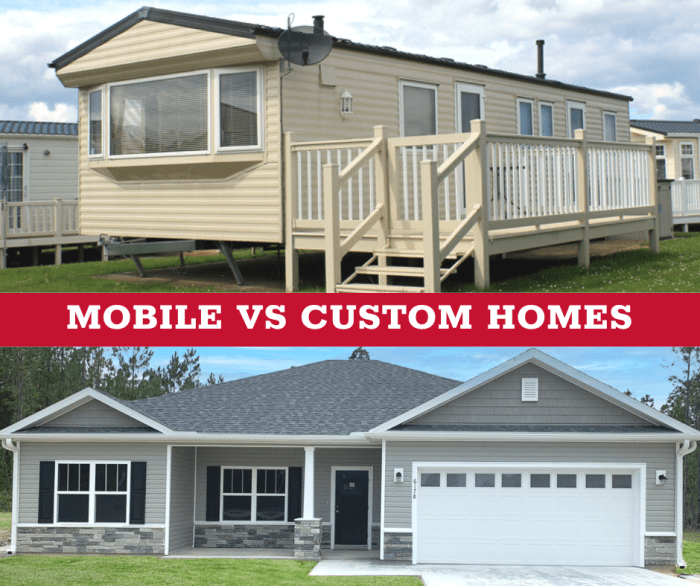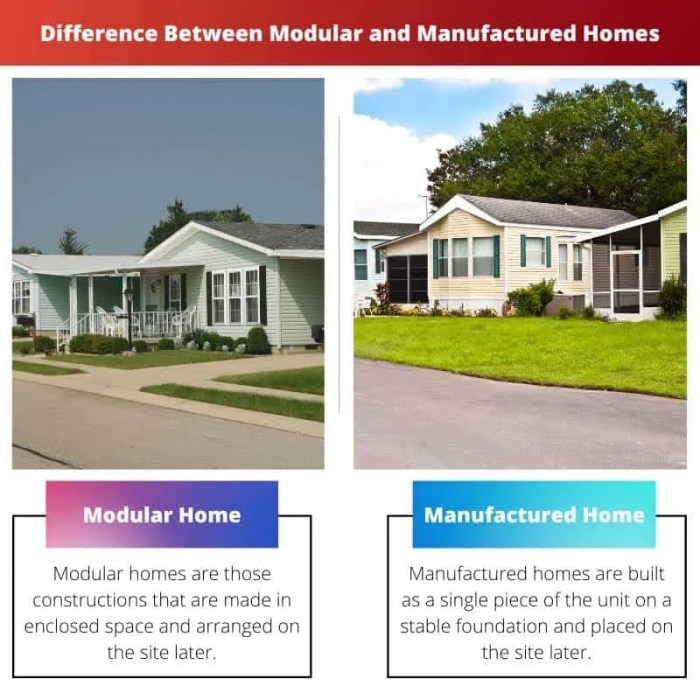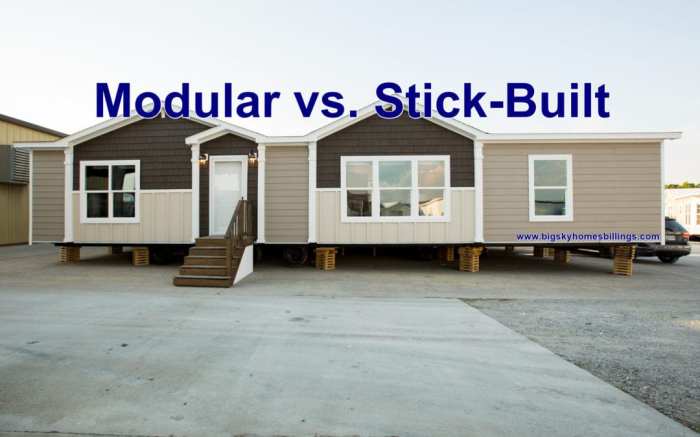Custom Built Homes vs Modular Homes: A Comprehensive Comparison

Exploring the differences between custom built homes and modular homes, this introduction sets the stage for an in-depth discussion that will shed light on the key distinctions between these two popular housing options.
As we delve deeper into the world of custom built homes and modular homes, we will uncover the unique features, cost factors, design processes, and quality considerations that set them apart.
Custom Built Homes vs Modular Homes
When it comes to choosing a new home, there are various options available in the market. Two popular choices are custom built homes and modular homes. Let's delve into the differences between the two.
Custom Built Homes
Custom built homes are unique, one-of-a-kind homes that are designed and constructed according to the specific preferences and requirements of the homeowner. These homes are typically built on-site, allowing for a high degree of customization and personalization.
Modular Homes
Modular homes, on the other hand, are prefabricated homes that are built off-site in a factory-controlled setting. These homes are constructed in sections or modules, which are then transported to the final location and assembled on-site. While modular homes offer some degree of customization, they are typically more limited in design options compared to custom built homes.
Comparison of Customization Options
- Custom Built Homes: With custom built homes, homeowners have the freedom to choose every aspect of their home, from the layout and floor plan to the finishes and fixtures. This level of customization allows for a truly unique and personalized home that reflects the homeowner's style and preferences.
- Modular Homes: While modular homes offer some customization options, such as choosing from a selection of floor plans and finishes, the choices are often more limited compared to custom built homes. The modular construction process may also restrict certain design features that can be incorporated into the home.
Cost Factors

When it comes to building a home, cost is a significant factor to consider. Let's explore the various cost considerations between custom built homes and modular homes.
Cost Considerations for Custom Built Homes
Custom built homes offer the flexibility to personalize every aspect of your home, from the layout to the finishes. However, this level of customization typically comes at a higher price tag. Factors that can influence the cost of custom built homes include:
- Architectural design fees
- Cost of land
- Quality of materials
- Labour costs
- Permitting and inspection fees
Cost Savings of Choosing Modular Homes
Modular homes, on the other hand, are prefabricated in a factory and then assembled on-site. This streamlined construction process often results in cost savings compared to custom built homes. Some advantages of choosing modular homes include:
- Lower labour costs
- Reduced construction time
- Less material waste
- Potential energy efficiency savings
Hidden Costs Associated with Both Custom Built and Modular Homes
While modular homes may offer cost savings upfront, it's essential to be aware of any potential hidden costs that could arise. Some hidden costs associated with both custom built and modular homes include:
- Site preparation costs
- Transportation expenses for modular homes
- Upgrades or customizations beyond standard features
- Additional foundation work for custom built homes
- Maintenance costs over time
Design and Construction Process
When it comes to custom built homes, the design and construction process typically begins with hiring an architect to create a unique design based on the homeowner's specific preferences and needs. The design is then refined through collaboration between the architect, builder, and homeowner to ensure it meets all requirements before construction begins
Custom Built Homes
- Custom built homes involve a more personalized approach to design, allowing for greater customization and creativity.
- The construction process for custom homes can be more time-consuming due to the detailed planning and individualized features.
- Homeowners have more control over materials, finishes, and layout choices, leading to a one-of-a-kind home.
- Custom homes often require more on-site labor and skilled craftsmanship, resulting in a higher level of quality and attention to detail.
Modular Homes
- Modular homes are designed and constructed in sections off-site in a factory-controlled environment, using the same materials as traditional custom-built homes.
- The design process for modular homes is more standardized, with pre-designed floor plans that can be customized to some extent.
- Construction of modular homes is typically faster than custom homes, as the pre-fabricated sections are assembled on-site in a matter of weeks.
- Modular homes offer some degree of customization but may have limitations compared to custom built homes.
Quality and Materials

When it comes to custom built homes, the quality of materials used is often a top priority. Homeowners working with custom builders have the flexibility to choose high-quality materials that meet their specific needs and preferences. This customization allows for greater control over the overall quality of the home.Modular homes, on the other hand, are typically built with standardized materials to ensure consistency and efficiency in the manufacturing process.
While these materials are still of good quality, they may not offer the same level of customization or premium options available in custom built homes.
Quality Standards in Custom Built Homes
- Custom built homes often use premium materials such as hardwood floors, granite countertops, and high-end fixtures.
- Builders working on custom projects prioritize quality over quantity, focusing on craftsmanship and attention to detail.
- Homeowners have the opportunity to select materials that meet their specific requirements and design preferences.
Quality Standards in Modular Homes
- Modular homes are constructed using standardized materials to ensure consistency and efficiency in the manufacturing process.
- While the materials used in modular homes are of good quality, they may not offer the same level of customization or premium options available in custom built homes.
- Quality control measures are in place during the manufacturing process to ensure that the materials meet industry standards.
Conclusive Thoughts

In conclusion, the comparison between custom built homes and modular homes reveals a range of factors to consider when choosing your ideal living space. Whether you prioritize customization, cost-efficiency, or construction timelines, understanding the differences between these housing options is crucial for making an informed decision.
Questions Often Asked
What are the key differences between custom built homes and modular homes?
Custom built homes are designed and constructed on-site according to the owner's preferences, while modular homes are prefabricated in sections and assembled on-site.
Are modular homes more cost-effective than custom built homes?
Modular homes generally offer cost savings due to their factory construction process and standardized designs, making them a more budget-friendly option compared to custom built homes.
How do construction timelines differ between custom built homes and modular homes?
Custom built homes typically have longer construction timelines as they are built from scratch on-site, while modular homes can be constructed more quickly due to their prefabricated nature.

